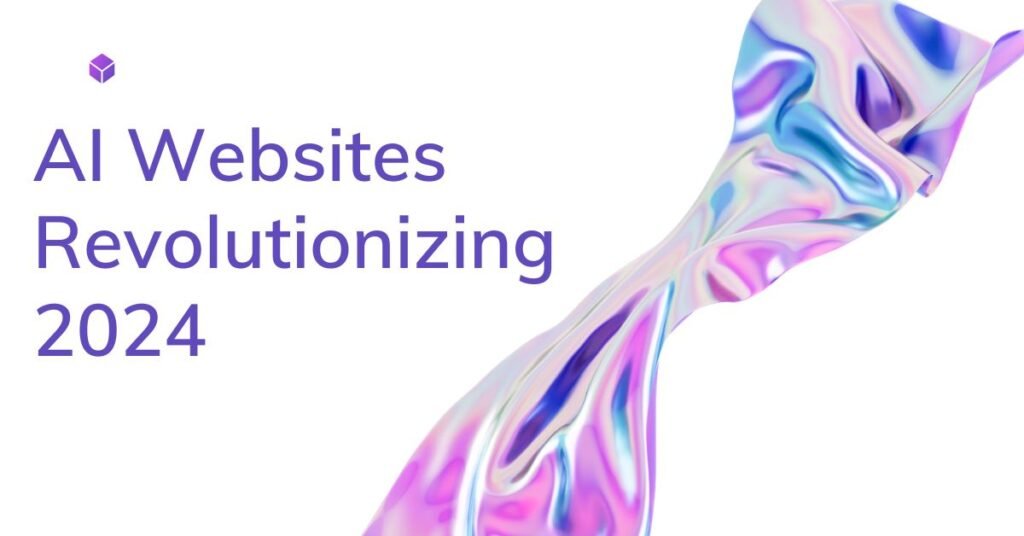Search Engine Optimization (SEO) has been a cornerstone of digital marketing for decades. The practice involves optimizing web content to rank higher in search engine results, driving organic traffic to websites. However, the digital landscape is evolving rapidly, and with advancements in artificial intelligence, particularly ChatGPT, the future of SEO is poised for a significant transformation. This blog explores the potential future of SEO in a world where ChatGPT and similar AI technologies become the primary sources of information retrieval, potentially overshadowing traditional search engines.
The Future of SEO with ChatGPT: Rise of AI-driven Search
What is ChatGPT?
ChatGPT, developed by OpenAI, is a powerful language model that uses deep learning to generate human-like text based on the input it receives. Its ability to understand and respond to natural language queries with remarkable accuracy has positioned it as a game-changer in information retrieval and customer interaction. To learn more about how ChatGPT works, visit OpenAI’s official page.
The Decline of Traditional Search Engines
Traditional search engines like Google, Bing, and Yahoo have long dominated the digital information landscape. However, with AI-driven models like ChatGPT providing instant, conversational responses, the necessity for traditional search engine interfaces could diminish. Users might prefer the seamless, human-like interaction offered by AI, leading to a decline in search engine usage.
The Evolution of SEO in an AI-dominated World
Redefining Keywords and Search Queries
In the current SEO landscape, keywords play a crucial role in driving organic traffic. Marketers optimize content to rank for specific search terms. However, with AI like ChatGPT, the focus may shift from exact keywords to the context and intent behind queries. Understanding user intent and providing comprehensive, relevant answers will become paramount.
Content Optimization for AI
To remain relevant, content creators will need to adapt their strategies to optimize for AI understanding. This involves creating content that is not only informative but also contextually rich and conversational. Structured data, semantic SEO, and natural language processing (NLP) techniques will be crucial in ensuring AI models can accurately interpret and present information.
Emphasis on Quality and Authority
AI models prioritize high-quality, authoritative content to provide accurate responses. This means that content creators will need to focus on producing well-researched, reliable information. Building domain authority through backlinks, citations, and expert endorsements will become more important than ever.
Technical SEO in the Age of AI
Structured Data and Schema Markup
Structured data and schema markup help search engines understand the context of content. In an AI-driven world, this will be even more critical. Implementing structured data allows AI models to accurately interpret and present information, enhancing visibility and credibility. For more information on structured data, refer to Google’s Structured Data guidelines.
Voice Search Optimization
With the rise of voice-activated AI assistants like Alexa, Siri, and Google Assistant, optimizing for voice search will be essential. This involves understanding natural language queries and providing concise, conversational answers that AI can easily relay to users.
Mobile and Speed Optimization
As AI-driven interactions become more prevalent, ensuring fast, mobile-friendly websites will be crucial. Users will expect instant responses, and any delay in loading times can negatively impact user experience and engagement. For tips on mobile optimization, visit our article on Mobile SEO Best Practices.
The Role of Social Media and User Engagement
Leveraging Social Media for SEO
Social media platforms will play a significant role in driving traffic and engagement in an AI-dominated world. Content that performs well on social media is likely to be favored by AI models due to its popularity and relevance. Creating shareable, engaging content will be key to boosting visibility.
User Engagement and Feedback
AI models learn and improve based on user interactions and feedback. Encouraging user engagement through comments, reviews, and social shares will help improve the visibility and accuracy of content. User-generated content and community involvement will be vital in shaping AI responses.
Ethical Considerations and Challenges
Misinformation and Content Authenticity
One of the biggest challenges in an AI-driven SEO landscape is the potential spread of misinformation. Ensuring content authenticity and accuracy will be crucial. Content creators and AI developers will need to work together to establish guidelines and verification processes to combat false information.
Privacy and Data Security
As AI models collect and process vast amounts of data to provide personalized responses, ensuring user privacy and data security will be paramount. Transparent data practices and robust security measures will be essential to maintain user trust.
Future Trends and Predictions
Personalized AI Assistants
The future may see the rise of highly personalized AI assistants that cater to individual preferences and needs. These assistants will rely on comprehensive user data to provide tailored recommendations and information, further reducing the reliance on traditional search engines.
Integration of Augmented Reality (AR) and Virtual Reality (VR)
The integration of AR and VR with AI-driven information retrieval could revolutionize how users interact with content. Imagine virtual environments where AI provides real-time information and assistance, enhancing user experience and engagement.
Evolution of Content Formats
As AI technology advances, new content formats will emerge. Interactive content, immersive experiences, and dynamic media will become more prevalent, offering users richer and more engaging ways to consume information.
A New Era of SEO Strategies
Understanding User Intent on a Deeper Level
In an AI-driven world, the key to successful SEO will be understanding and anticipating user intent with greater precision. Instead of focusing solely on keywords, marketers will need to delve into the underlying motivations and needs of users. This shift will require sophisticated data analysis and user behavior insights to create content that truly resonates with the audience.
Creating Conversational Content
As AI models like ChatGPT become more prevalent, the demand for conversational content will increase. Users will expect interactions that mimic human conversation, making it essential for content to be written in a natural, engaging tone. This approach will not only improve user experience but also enhance the AI’s ability to understand and respond accurately.
The Importance of Topic Clusters
Topic clusters will become a vital component of SEO strategies. By organizing content into clusters around central themes, websites can improve their authority and relevance in the eyes of AI models. This structure makes it easier for AI to navigate and understand the relationship between different pieces of content, leading to better visibility and higher rankings.
Enhancing User Experience (UX)
A seamless and enjoyable user experience will be crucial in an AI-dominated SEO landscape. Factors such as website design, navigation, and accessibility will significantly impact how AI models perceive and rank content. Investing in UX improvements will not only benefit SEO but also increase user satisfaction and engagement.
The Role of Video and Visual Content
Video Optimization for AI
Video content will play an increasingly important role in SEO strategies. AI models are becoming adept at understanding and indexing video content, making it essential for marketers to optimize videos with relevant keywords, transcripts, and metadata. Engaging, high-quality video content can significantly boost visibility and drive traffic.
The Power of Visual Search
Visual search technology, powered by AI, allows users to search using images rather than text. This innovation presents new SEO opportunities, as optimizing visual content for search engines will become a critical strategy. Marketers will need to focus on image quality, alt text, and descriptive tags to ensure their visual content is easily discoverable.
Building Trust and Authority
Authoritative Content Creation
In an AI-driven SEO landscape, the emphasis on authoritative content will be more pronounced. AI models prioritize information from credible sources, making it essential for websites to establish themselves as authorities in their respective fields. This can be achieved through comprehensive research, expert contributions, and transparent sourcing.
Leveraging Influencers and Thought Leaders
Collaborating with influencers and thought leaders can enhance a website’s credibility and reach. Influencers bring their audience and authority, which can positively impact the perception of content by AI models. Building partnerships with respected figures in the industry can drive traffic and improve SEO performance.
Adapting to Algorithm Changes
Continuous Learning and Adaptation
AI models like ChatGPT are constantly evolving, and their algorithms undergo frequent updates. Staying ahead in the SEO game will require continuous learning and adaptation. Marketers must keep abreast of the latest developments in AI technology and adjust their strategies accordingly to maintain visibility and relevance. Stay updated by following our blog on SEO Trends and Updates.
Predictive SEO
Predictive SEO involves using data analytics and machine learning to anticipate future trends and user behavior. By leveraging predictive insights, marketers can create content that meets emerging needs and stays ahead of the competition. This proactive approach will be essential in an AI-dominated SEO landscape.
The Human Element in AI-Driven SEO
Balancing Automation with Human Creativity
While AI offers powerful automation capabilities, the human element remains indispensable in SEO. Creativity, empathy, and nuanced understanding are qualities that AI cannot fully replicate. Balancing automation with human creativity will be key to producing content that resonates with users and meets their needs effectively.
Ethical AI Practices
As AI continues to shape the future of SEO, ethical considerations must be at the forefront. Ensuring transparency, fairness, and accountability in AI practices will be crucial. Marketers and AI developers must work together to establish ethical guidelines that protect user privacy and prevent the spread of misinformation.
FAQs
How will ChatGPT change traditional SEO?
ChatGPT will shift the focus from keyword-based optimization to understanding user intent and context. Content will need to be more conversational and contextually rich to align with AI-driven search models.
What role will voice search play in future SEO?
Voice search will become increasingly important, requiring content to be optimized for natural language queries. Providing concise, conversational answers will be key to ranking well in voice search results.
How can content creators build authority in an AI-driven SEO landscape?
Content creators can build authority by producing high-quality, well-researched content, earning backlinks from reputable sources, and collaborating with industry experts and influencers.
What are topic clusters, and why are they important?
Topic clusters organize content around central themes, improving authority and relevance. They help AI models understand content relationships, leading to better visibility and rankings.
How can businesses ensure their content is optimized for AI models like ChatGPT?
Businesses can optimize content for AI by using structured data, focusing on user intent, creating conversational content, and ensuring high-quality, authoritative information.
What ethical considerations should be taken into account with AI-driven SEO?
Ethical considerations include ensuring content authenticity, protecting user privacy, and maintaining transparency and accountability in AI practices to prevent misinformation and data misuse.


